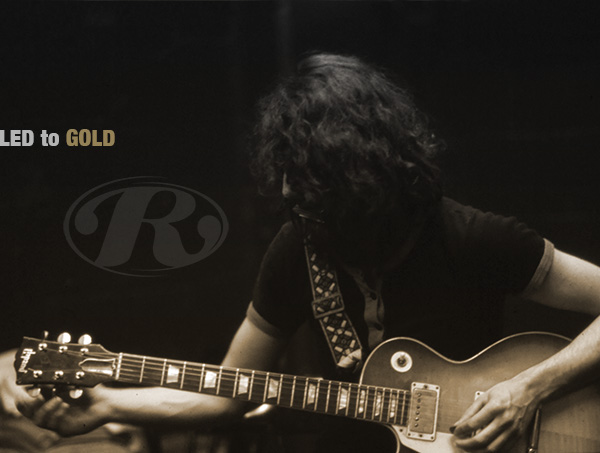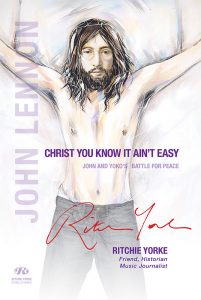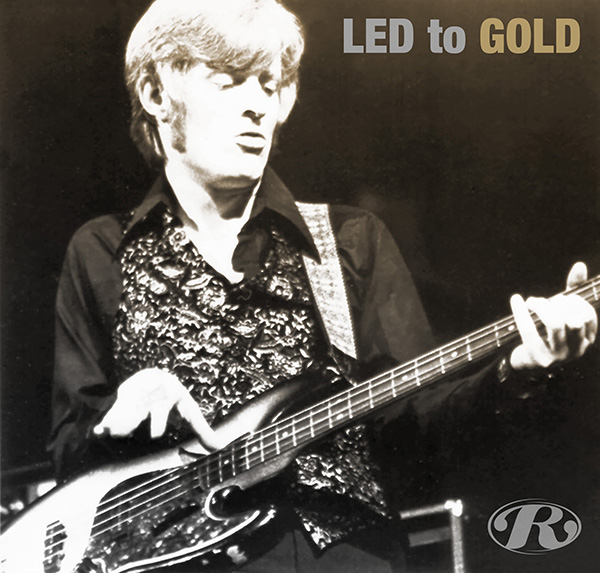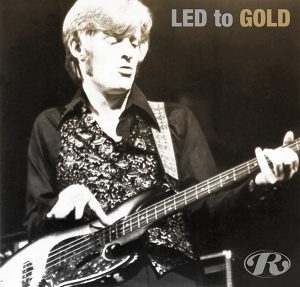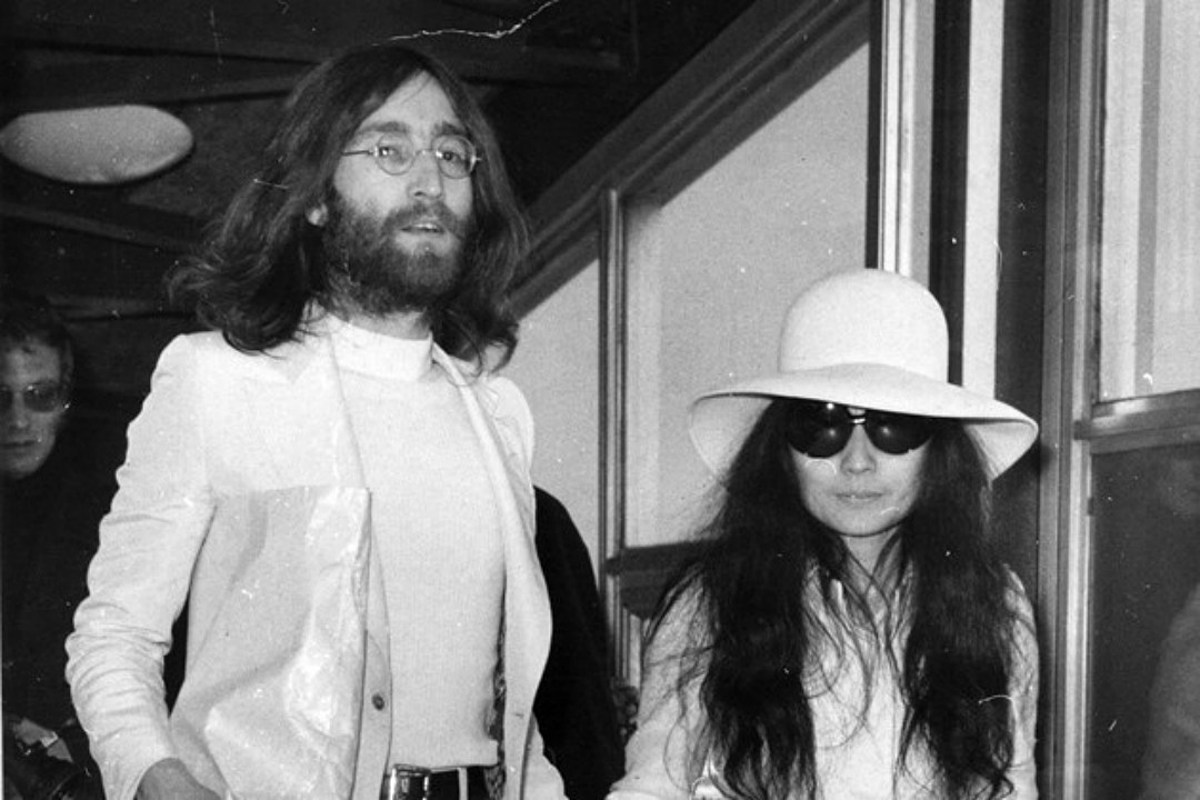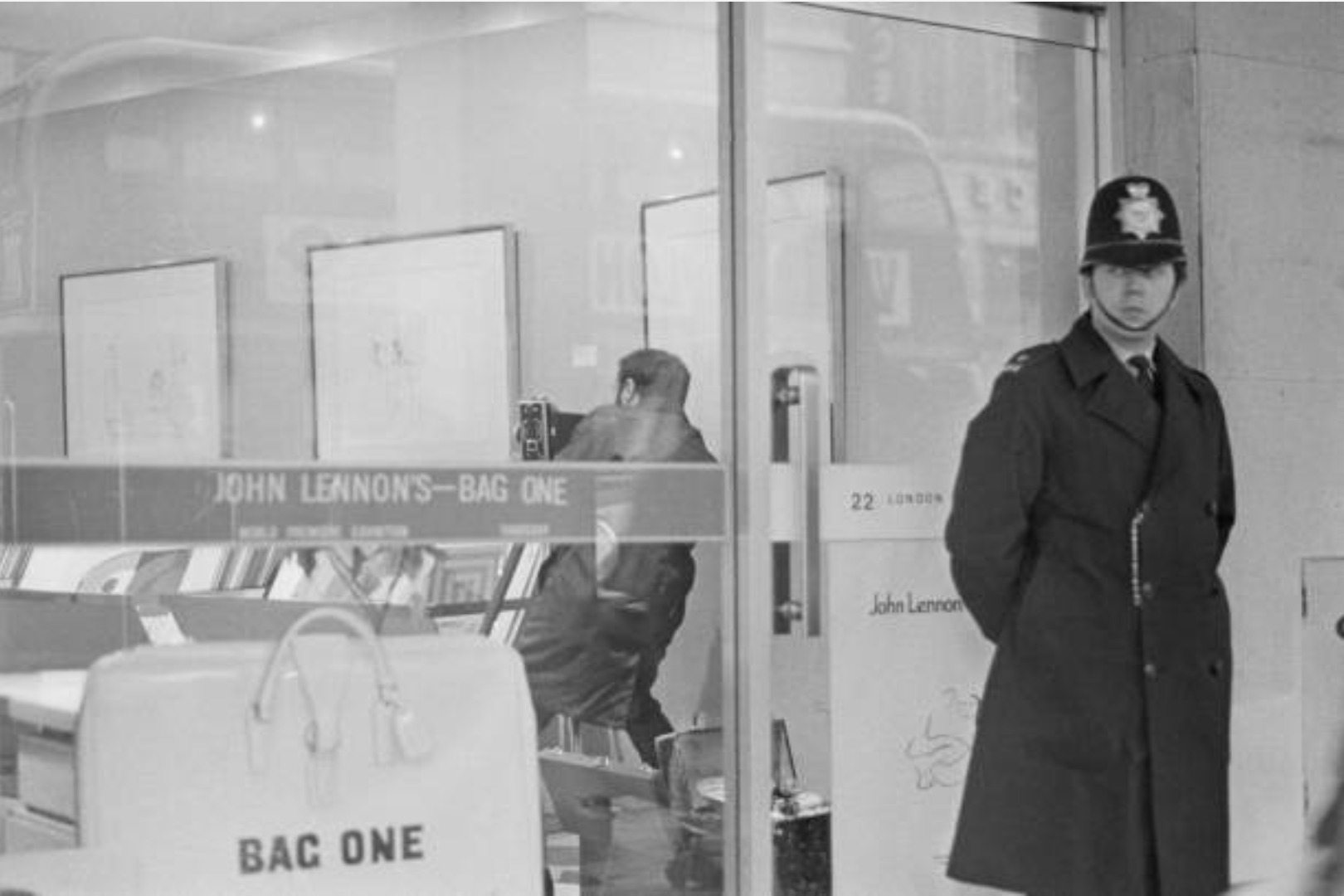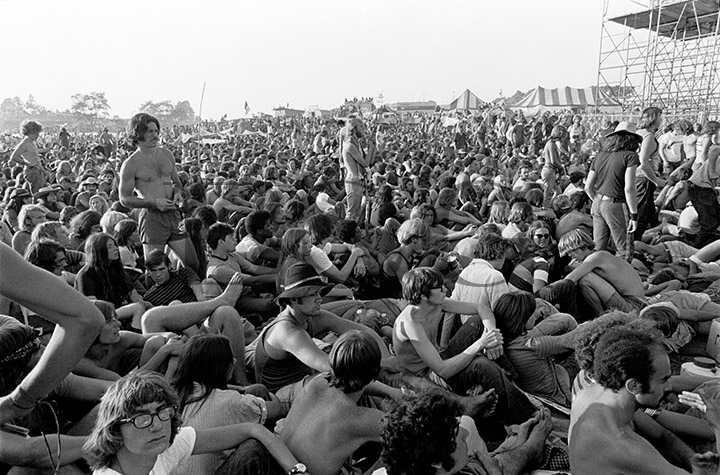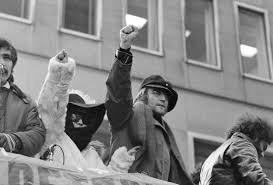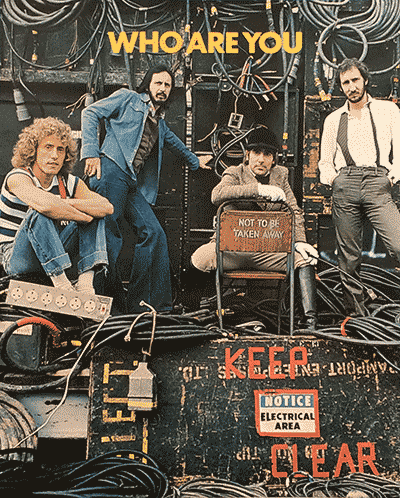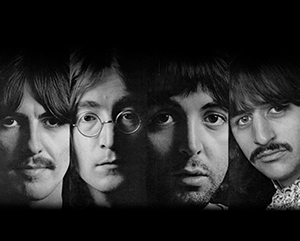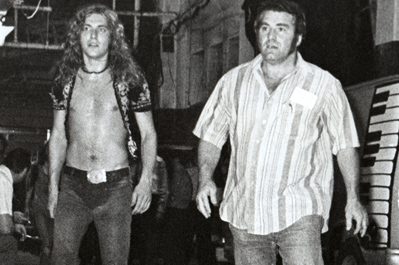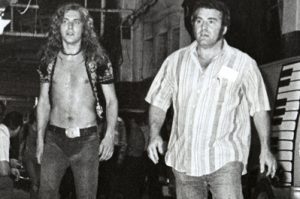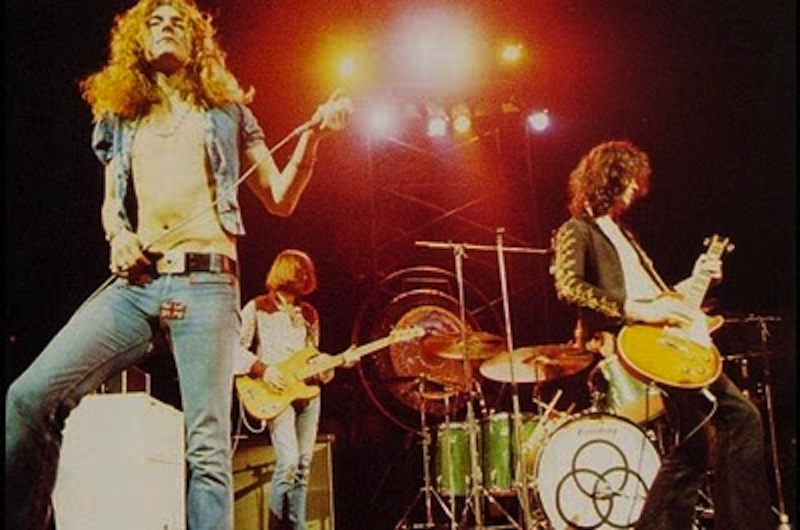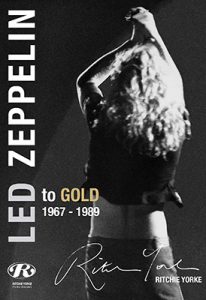10 Apr Led Zeppelin Profile: Jimmy Page
The this part of our four-part series on Led Zeppelin is an interview with the man who made it all possible in the beginning, guitarist extraordinary Jimmy Page.
RY: WHERE DO YOU THINK YOUR FOLLOWING LIES?
JP: It’s hard to pinpoint really. At the beginning it was the underground clubs because that’s where we started. Obviously it’s spread by the amounts of people who come to our concerts. People are coming all over from schools and I don’t know where. The turnout is getting so big you wonder where everybody does come from. I suppose basically it was from the underground thing.
RY: THERE SEEMS TO BE A LOT OF YOUNG PEOPLE INTO YOUR MUSIC NOW?
JP: I don’t really know why this happens, specially for our sort of music. But I do know that when the Cream did the Madison Square Garden concert there were people of nine and eleven in there. This is really quite amazing. I’m not really quite sure of their motives.
I’m sure they can’t really be into the music – they can’t understand it. But then again, you find in England, kids (I don’t like to call them that), people of thirteen are buying underground music and apparently know what’s going on in the music.
I know a source, a fellow who runs a record store near where I live who keeps me up to date on who’s buying what… the English charts are so strange, such weird things get in, it often amazes me who buys what. So I do a bit of research and yes, 13 year olds do buy these records.
RY: DID YOU HAVE ANY IDEA OF WHERE YOU WERE GOING A YEAR AGO?
JP: Yes, the whole thing at the times was hard rock core which you can hear on the first album cos it’s basically what it is. Obviously, there’s a couple of blues as well – hard rock and blues, the whole thing.
That was the whole idea od it and it still is really. But now we’ve had more acceptance, we can open up on other things which we probably wouldn’t have done to start with. Things like “Thank You.” Really there’s so much we can do, it’s just a matter of time getting it all out.
RY: WERE YOU SURPRISED AT YOUR TREMENDOUS SUCCESS?
JP: Oh yeah. The Yardbirds at the end were getting probably $2,500 a night and I though LZ would probably start of at $1,500 and work our way up to that and have a good time. But that was all I expected. It’s really frightening actually the way it has snowballed.
SECOND ALBUM
The record sales of the second album… it really surprises me, it’s beyond my comprehension that things should go this well. Because it wasn’t a contrived thing. Obviously, it was time for our sort of group, what with the Cream breakup and Hendrix hadn’t been doing much. They had been the two real big ones at that time so I think it was just good luck that our timing was right. And in we came with the hard rock as well.
RY: WHAT DO YOU THINK OF THE AMERICAN POP SCENE?
JP: Well, one always gets inspiration from people like Love, but I believe they’ve broken up, which is unfortunate ‘cos Arthur Lee was a tremendous writer. And of course Buffalo Springfield and all the offshoots of these things will be and are great. There are groups over here doing really good things.
Blood, Sweat and Tears aren’t my cup of tea. Spirit do some really nice things on albums. They give a really nice atmosphere when they play and I always enjoy seeing them.
RY: HOW ABOUT THE DOORS?
JP: Actually, I was surprised after hearing a lot about the Doors and we got a lot of advance publicity in England about how sexy Jim Morrison was, how virile and whatever. I was surprised to see how static he was live on stage. I admire his writing ability and when he gets it together in a studio, he really does. But on stage, he’s not really for me.
He doesn’t really come across in any way I’d like to see. Being dressed in black leather can only go so far but standing there like my father would on stage doesn’t really come across for me.
RY: WHAT DO YOU THINK OF THE OPINION THAT ROBERT PLANT COPIES JIM?
JP: How could he have done? They’re completely different. If you want to relate Robert to a sexual image, and a lot of people are doing that, he’s all those things one would associate with it. He’s good looking (I’m not saying Jim isn’t), he’s got the virile image, he moves very well on stage and he looks right and he sings well – his whole thing is total sexual aggression.
As far as I could see, the Morrison thing is just an embarrassment towards the audience. He would actually insult them and swear at them and his sexual thing is more of an introvert thing – it isn’t so extroverted as Robert’s.
RY: YOU’RE DOING A LOT OF PERSONAL APPEARANCES IN NORTH AMERICA NOW. HOW DID IT ALL START?
JP: We started off at less than $1,500 a night actually. WE played for $200 one day but it was worth it because we didn’t care, we just wanted to come over and play the music. In England, we had such a bad time and bookers were saying “LZ used to be the Yardbirds, we’ll book them but we’ll put them as the new Yardbirds.” It was just a joke in England that they wouldn’t accept you. They won’t accept anything new.
Over here, we were given a chance. Bill Graham booked us in both the Fillmores and all the underground promoters like Russ Gibb and these people all booked us and gave us a great start and it was on our own shoulders. You know, come over here, work as hard as you can, give them all you can and if it doesn’t work, go back to England and start again. But obviously no one would have had us back if we had died. It was just up to us.
RY: YOU’RE EARNING FANTASTIC MONEY NOW. WHAT’S THE MOST YOU’VE EVER MADE?
JP: In Boston we got $45,000 for one gig which was just incredible. It just depends now – the artistic side can go so far, then the managers take over on the business and you start working on percentages above guarantees and it obviously depends on how big the place is and that was the biggest place we played. There were about 17,000 people.
RY: SOME CRITICS THINK YOUR VIOLIN BIT IS GIMMICKY.
JP: It’s important to me, actually. Unfortunately, it does look gimmicky with the visual thing of the violin bow but, in fact, good things can be done with it. It’s pretty hard to do. It’s not as easy as it looks in actual fact. I would still include it whether people hated it or not.
RY: DO YOU THINK YOU’VE IMPROVED YOUR GUITAR PLAYING SINCE JOINING LZ?
JP: I don’t know about LZ as LZ, but playing with these people has been fantastic. I’ve never played with such good musicians before in a group and I’m sure everyone’s improved within themselves.
RY: WHAT DO YOU THINK OF JEFF BECK?
JP: I think he’s great. When he’s having a shining night, he’s really fantastic. He plays things of sheer genius.
RY: I’VE HEARD THAT THE VANILLA FUDGE IS JOINING HIM?
JP: Yes, I’ve heard that. I don’t know how it’ll go temperament-wise. He’s got a funny temperament.
ERIC CLAPTON?
RY: ERIC?
JP: He’s a very tasteful player. I haven’t seen him play since John Mayall days. I didn’t see Cream, I didn’t see Blind Faith shows. That day is over isn’t it? Everybody says so.
RY: WHAT BANDS DO YOU LIKE?
JP: Unfortunately, I haven’t seen all the bands I’d like to see. I’d like to see Crosby, Stills, Nash & Young group. I really would. There’s a friend of mine, matter of fact he got my guitar for me, called Joe Walsh, who’s got a group going around the Cleveland area called the James Gang. I head them and they were very good and went down well. I expect we’ll hear more of them.
RY: WHO HAS INSPIRED YOU?
JP: Even now I don’t listen to current guitarists… Whether that sounds right or not. I was really listening to the old blues people. I though, “Well, they’ve got their thing out of it, I’ll get my thing out of it too.” I thought that if I started to listen to everybody else like Eric (Clapton) and Jimi (Hendrix) then I’d get bogged down with their ideas and start nicking their phrases which I probably did do subconsciously and I think everybody does.
You can hear Eric’s phrases coming out on Jimi’s albums and you can hear Hendrix phrases coming out on Eric’s records. I was really listening to acoustic guitarists like Bert Jansch. He’s my alltime favourite. I was listening to that more than anything and that’s what I play a lot of at home. I would really like to develop the acoustic guitar into something much better. The finger style not like C.S. & N.
RY: HOW ABOUT BLUES GUITARISTS?
JP: They’re great. They’re all got their trademarks. It’s so easy when you’re learning guitar to get all your trademarks off them and suddenly a style of your own develops out of this. I still listen a lot to Otis Rush more than any of the others. And a guitarist who came to England called Matt Murphy. Buddy Guy, of course. I could relate to them more than B.B. King at that time. Now I think that B.B. is very up-to-the-moment.
At that time, his records were recorded in the 30’s and it was hard to relate to them. Yet, I knew that people like Rush and Guy had drawn from them buy that was today’s statement of that thing. And it wasn’t till B.B. King became more well-known and more records became available that one was able to say that B.B. King is there as well.
RY: JOHNNY WINTER?
JP: I like his steel playing very much. His bottleneck Robert Johnson things. He’s really got those things off to a tee.
RY: SOME PEOPLE ACCUSE YOU OF HAVING NO TASTE?
JP: Maybe I haven’t. I don’t know. I Just play how I feel. If I feel tasteless, I play tasteless. I’ve heard every guitarist attacked that way – it depends on what they must have been as nervous as hell can do. If I say down with a guitar I could probably play a lot of things that a lot of other people couldn’t play – you know, classical things and people might say, “That’s really tasteful, man.”
RY: HOW ABOUT THE STONES?
JP: I don’t know really. Did you see that Hyde Park film? Some of it started off really good, but then they got into things like Satisfaction and it sounded pretty weak. I don’t know why. Maybe it’s because they hadn’t played for so long – it was such a big ordeal playing for so many people, they must have been as nervous as hell. I think it will be good because Jagger is so fantastic, and his songwriting – the words are incredible.
Beatles?
RY: AND THE BEATLES?
JP: They just turn it out, don’t they? It’s always good and always sounds fresh whether it is or isn’t. They’ve done some good things. It’s amazing the way their guitar styles come into it.
RY: WHAT ABOUT GEORGE’S PLAYING ON “ABBEY ROAD?”
JP: Was it really George? It might have been Paul. It’s nice actually.
RY: IN WHAT DIRECTION ARE YOU GOING?
JP: It sound corny, but we’ve got something we want to try out but I don’t want to tell you about it in case it doesn’t come off. It’s an idea for a really long track on the next album. In so much that “Dazed” and “Confused” and all those things went into sections – well, we want to try something new with the organ and acoustic guitar building up and building up to the electric thing.
RY: WHAT DO YOU FEEL ABOUT THE SECOND ALBUM?
JP: It took such a long time to do… on and off – having no time and having to write numbers in hotel rooms. And hearing the initial numbers we did so many times playing them to different people by the time the album came out I was really fed up with It. That’s why I had lost confidence in it by the time it came out. People were saying it’s great and I though “Oh good.”
RY: DO YOU LIKE BEING THE PRODUCER?
JP: Writing a lot of it, as it’s only album tracks, it’s nice to have a free hand in what you’ve written. A producer, in fact, would probably say, “Well, I like that idea but why don’t you try this?” and he’s start taking over. So it would be a bit of a battle if you’d written it yourself. It would be different on a single because I guess the producer would know.
That’s why I’ve been the producer most of the time because the songs have been either written by me and Robert, or the rest of the boys. It’s more personal really.
A SINGLE?
RY: DO YOU HAVE ANY PLANS FOR A SINGLE?
JP: Yeah, when we get back. We’ve got two ideas but then I say ideas, an idea usually amounts to a chorus or a couple of versus or a few riffs. It’s just a matter now of going back, have a week off or so and everyone’s going to think about singles and ideas for such.
Then we’re going to come together and amalgamate all the ideas to see what comes out of it. I should think.
RY: I HEAR THAT YOU REALLY CAN’T TOLERATE STRAIGHTS.
JP: Oh yeah, I really hate all of that narrow-mindedness. But I think anyone does with long hair, or anyone with genuine feeling. Even if they’re not, even if they appear to be a straight person if they’re sympathetic to other people, they would be fed up with hearing people making nasty comments to them.
You’re really discriminate against all the time. If I was coloured, I’d really be able to kick up a stick and I’m not, so I really have to put up with it, And I know everyone else with long hair does. It’s a bit of a drag.
RY: ANY PARTICULAR INSTANCES?
JP: Well, restaurants where you get a bad time. Try to check into hotels where they don’t like the look of you and they don’t want you messing up the swimming pool. You know how it is. It’s just
JP:
Unfortunately I haven’t seen live in. A hostile sort of age.
SOMETHING
A tribute from King Curtis is no insignificant gesture. He is widely regarded as the pop world’s No. 1 tenor sax man.
He has played on each of the historic, sales-spiralling recording sessions of Aretha Franklin, and it was he who arranged, and blew sax, on Aretha’s classic version of Respect.
King is appearing at the Coq D’Or for two weeks, taking a strong claim as the foremost blues bandleader on the circuit today.
On uptempo numbers, he would make a touch-typist envious as he punches on the saxophone keys with amazing speed and dexterity.
He holds a blue note for so long that one begins to wonder if he has an auxiliary air tank hidden away on his bulky frame. He plays with unquestionable enthusiasm, dynamic drive, and sensitive persuasion.
VERSATILE
He’s equally at home with ballad or beat. It might have been freezing outside, but inside there was a heat wave going on.
The act’s eight-minute version of Ode To Billy Joe may yet bring the poor boy back to life. King’s rendition of I Was Made to Love Her is even more compelling, carrying a Cassius Clay-class punch.
Memphis Soul Stew, a recent hit for the combo, came off like home made apple pie. The clincher was Soul Serenade, a tortuous yet tender ballad, which Curtis blew through on his saxello with almost naive sensitivity.
Toronto is obviously hip to the Curtis message; the club was packed with people of all ages, the over 30’s predominating.
PISTON
Curtis and the Kingpins are as tight as a hot rod piston, with comparable power. The group comprises Jimmy Smith on electric piano, Mervyn Bronson on bass, Al Thompson on drums, and Stirling McGee on guitar, all first- class sidemen.
Curtis also introduced a young female vocalist, one Ruby Michelle, who contributed more than adequate workouts on current contemporary favorites like Chain of Fools.
The music is down to earth. The group is the equal of anything, anywhere. Curtis is King for those who like good music well played.

